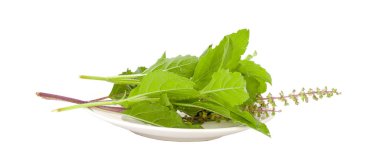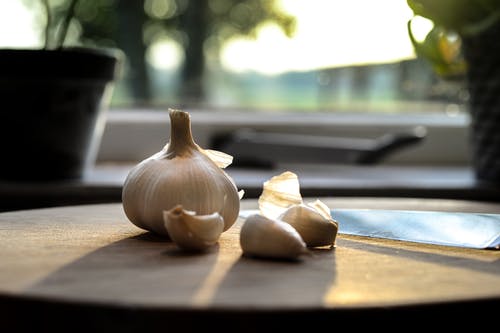Tulsi is a popular herb in Ayurvedic medicine that is cultivated in the tropics of Southeast Asia. The herb is commonly known by its scientific name Ocimum sanctum or holy basil and is highly regarded in Indian culture due to medicinal properties.
The herb has been cultivated in India for centuries and often called “The Queen of Herbs” due to its potential to promote overall well-being. In this article, we will explore what the herb is, the benefits of using it daily, and everything you need to know about the herb.
What is Tulsi?
Holy basil is a remarkable herb that belongs to the mint family called lamiaceae. Tulsi features little purple flowers and aromatic leaves that are used in traditional medicine, teas and as a seasoning of food. The herb is considered sacred in Hinduism and is cultivated in homesteads as a symbol of health, overall well-being, and purity.
Health Benefits of Using Tulsi Daily
Boost Immunity
Holy basil is very rich in zinc, antioxidants and vitamin C, all of which help boost immune response. Tulsi also has antifungal, antibacterial, and antiviral properties that protect the body from fungal, bacterial, and viral infections. Incorporating tulsi in daily routine will greatly improve your immunity and enhance your overall well-being.
Respiratory Health

Tulsi is revered for combating respiratory problems, thereby boosting respiratory health. The herb compounds such as cineole, eugenol, and camphene, that help lower congestion, soothe dry coughs, and alleviate signs of asthma, bronchitis, and colds.
Drinking tulsi tea or inhaling holy basil infused steam helps lower discomforts associated with respiratory problems.
Reduce Anxiety and Stress
Tulsi is widely known for relieving stress by lowering cortisol levels in the body and creating a sense of calm and overall well-being.
The herb is also known to enhance mood due to its anxiolytic and antidepressant properties, which are beneficial in managing stress, anxiety, mood disorders, and depression. Moreover, regular consumption of holy basil improves cognitive functions like mental clarity, focus and memory.
Promote Heart Health
Tulsi contain compounds like eugenol, which are known to lower blood pressure and cholesterol levels, thereby boosting heart health. Consuming the herb on a daily basis will help lower inflammation and oxidative stress enhancing cardiovascular health. In addition, the herb has blood-thinning properties that help reduce the risk of strokes and heart attacks.
Regulation of Blood Sugar
Tulsi has hypoglycemic properties that help regulate blood sugar levels, thereby reducing the risk of type 2 diabetes. The herb is also known to improve insulin sensitivity to help the body lower the risk of insulin resistance and ensure efficient use of glucose.
Spiritual and Ritualistic Use

In the Hindu tradition, the herb is considered a sacred plant, which is often grown in homes for spiritual purification, peace and prosperity.
In India, the herb is used for a ceremonial marriage that marks the end of monsoon and symbolizes the start of the wedding season.
Culinary Uses
Tulsi leaves are used as seasoning for a wide range of dishes like soups, sauces and salads due to their aromatic flavor. It is also used to prepare herbal tea that is commonly known for its health benefits and flavor.
Aromatic In Flavor
Tulsi is a remarkable herb, which is widely known due to its numerous health benefits and aromatic flavor. Consuming the herb has several benefits, such as boosting cardiovascular health, immunity, respiratory health, mental health, and regulating blood sugar. The herb can also be used for spiritual purposes to enhance your life and promote your overall well-being.






